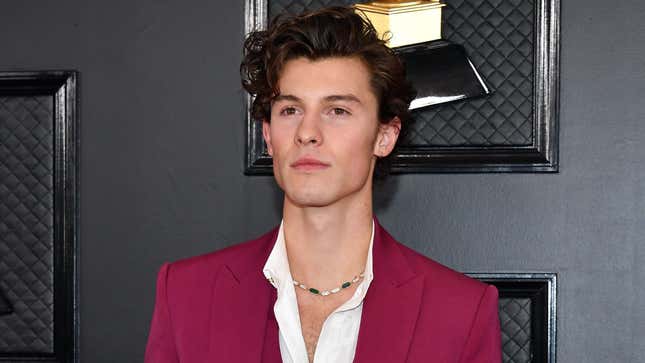

The water is a deep sea blue, almost navy, punctured by a cloudburst—droplets creating sundry waves as wide as the ocean stretches. In the middle of the tempest is Shawn Mendes, the 22-year-old Canadian pop performer, eyes closed and smiling wide in the direction of the gray sky, his sharp jawline obscured just beneath the surface. Above him, the title of his third full-length album, Wonder, and Netflix documentary film, In Wonder, are scribbled repetitively. No doubt a reflection of Mendes’ own obsessive journaling habit, one that routinely has him pulling a reverse Bart Simpson at the chalkboard: he writes and rewrites the same phrase, over and over again, as a meditative practice or an exercise in manifestation. His album cover doesn’t take much work to decode: In the darkness, he’s found love—a feeling of awe indistinct enough to feel universal, one he cops to being unable to describe. “I think it’s like when you see a moon or stars and you try and take a photo of it with your iPhone and then you just can’t, it just doesn’t look good,” he ponders in In Wonder. “It’s not supposed to be captured.”
So, then… what is he trying to capture? What is Shawn Mendes’s deal?
-

-

-

-

-

-

-

-

-

-

-

-

-

-

-

-

-

-

-

-

-

-

-

-

-

-

-

-

-

-

-

-

-

-

-

-

-

-

-

-








































